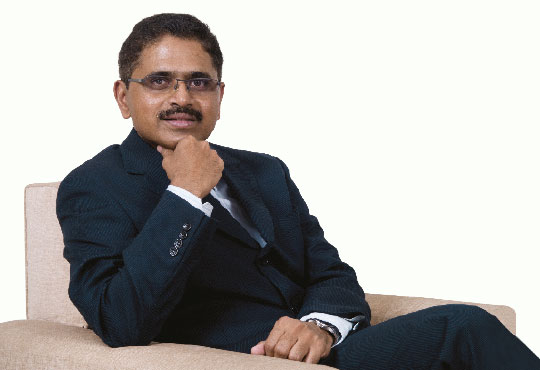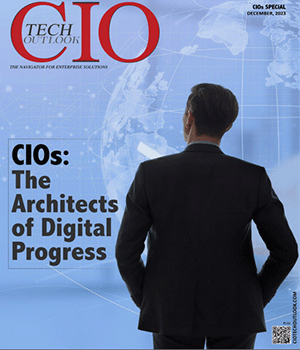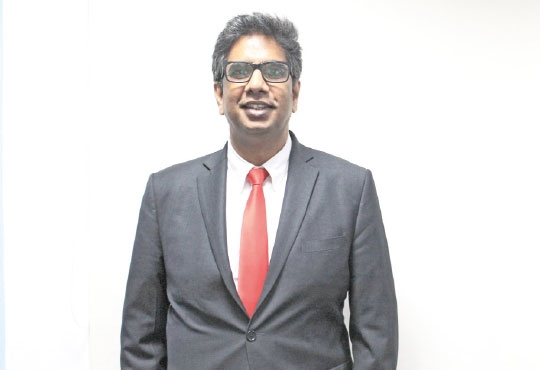
Incorporating Technology for Successful GST Implementation
Susheel Navanale, Group CIO, Tata Global Beverages | Monday, 09 October 2017, 06:01 IST
 In order to boost economic activity and substantially contribute to Gross Domestic Product (GDP) growth, GST (Goods and Services Tax) regulations have been implemented that enforce uniform tax rates across India. With the incorporation of technology, the time and cost has significantly reduced while simultaneously enhancing the accuracy of compliance. Because of the way GST is structured, it is imperative that there is compliance at every stage when the goods are moving across the supply chain where one has the ability to track the movement of these goods using technology. The data has to be amalgamated on a real-time basis to allow one to get GST credit and hence it is very important that the whole system is automated end-to-end and there is no manual processing in the supply chain. With GST implementation, data is channelized to flow into one direction to the Government; better known as Business to Government data flow. With innumerable duplication of claims on input tax, fraudulent claims and the likes, it has become a challenge for the concerned department to track down the input claims against the liability of the seller. However, with the new GST set up it is pivotal that complete detailed transaction information is added in the system. In order to do that across a gamut of parties spread along the country, there is a critical need a robust cloud based system. This cloud platform will permit the broad range of parties to seamlessly connect utilizing the internet and additionally gives the necessary speed of implementation required.
In order to boost economic activity and substantially contribute to Gross Domestic Product (GDP) growth, GST (Goods and Services Tax) regulations have been implemented that enforce uniform tax rates across India. With the incorporation of technology, the time and cost has significantly reduced while simultaneously enhancing the accuracy of compliance. Because of the way GST is structured, it is imperative that there is compliance at every stage when the goods are moving across the supply chain where one has the ability to track the movement of these goods using technology. The data has to be amalgamated on a real-time basis to allow one to get GST credit and hence it is very important that the whole system is automated end-to-end and there is no manual processing in the supply chain. With GST implementation, data is channelized to flow into one direction to the Government; better known as Business to Government data flow. With innumerable duplication of claims on input tax, fraudulent claims and the likes, it has become a challenge for the concerned department to track down the input claims against the liability of the seller. However, with the new GST set up it is pivotal that complete detailed transaction information is added in the system. In order to do that across a gamut of parties spread along the country, there is a critical need a robust cloud based system. This cloud platform will permit the broad range of parties to seamlessly connect utilizing the internet and additionally gives the necessary speed of implementation required.
Perfectly understanding this, Tata Global Beverages had previously implemented a leading ERP system, opted for an upgrade so as to enable the capture of all of the transactions that have taken place and have the ability to record every detail assuring compliance to the GST network. Whilst upgrading the system, the team required infrastructure in order to complete the project, test it, have the ability to create a separate environment for implementation and realised that the on-premises data centre had reached its limits. Post this, Tata Global Beverages put out some of the instances for the GST implementation onto public cloud. Assistance in jump starting the project can be accredited to the adoption of cloud, enabling users across the country to test it extensively and the partners were able to see how it works, all within the allotted timeframe.
Like everything, cloud adoption too has its own set of challenges with understanding cloud and how it works ranking as one of the topmost challenges. This challenge can be addressed with the right education and training on the cloud. Extensive testing can be carried out in a very short span of time using a cloud based platform.
Bracing Oneself for the future
With the entire GST network sitting on cloud, it actually assists a multitude of tax payers to better interact with the government system. With the use of public cloud, all the businesses are able to leverage the kind of power which public cloud has, like the ability to scale up over a very short period of time and permit compliance. For example, Tata Global Beverages being an FMCG company, account for a high number of transactions of each product. While the value of each Stockkeeping Unit (SKU) like a packet of tea may not be much but definitely adds up to a massive number of transactions and every transaction has to be recorded, compliant, needs to be loaded onto the system, and then uploaded in the tax network. This implies that there is a requirement for a huge amount of IT infrastructure which the cloud effectively assists with.
Tata Global Beverages is taking a very proactive approach with regards to adopting some of the newer technologies especially ones where there is very obvious business benefit like cloud, analytics, Internet of Things and so on. The company has been implementing the appropriate technologies as and when required to support the business in a proactive manner especially along this digital journey.
With the case of GST implementation, because it is so time-bound, critical and any delay or any mistake in the implementation would mean loss of tax credit, this has to be a sort of implementation where every part of the business has to work together and IT plays a key role in terms of providing the technology aspects and it is important that all the functions work collaboratively to get this right. With GST eliminating the cascading taxation system, it will improve administrative efficiency of the tax authorities and also assist in the development of a unified national market.
CIO Viewpoint
Hyper-Converged Infrastructure: The Next Big...
By Amit Jaokar, EVP - IT, Choice International
Embracing Technology: Need of the Hour in BFSI
By Nikhil Bandi, SVP & CIO, Vistaar Financial Services
Three Pronged Approach For Digitization In Life...
By Ekhlaque Bari, EVP & Head Technology - Max Life Insurance
CXO Insights
A Glimpse of A Changed AI Perspective in India
By Dr. Vijay Srinivas Agneeswaran, Senior Director of Technology, Sapient
Social Networking and the Enterprise
By Arindam Sen, SVP, Schneider Electric
Digital Transformation - Darwinism Or Dwarfism?









